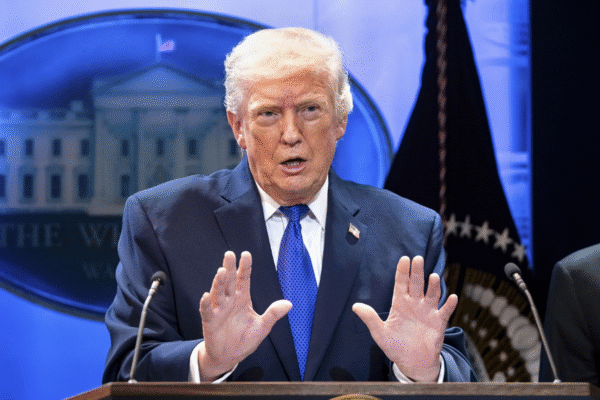

Adani Gets Edge Over Ambani in Modi’s India
In recent years, the Adani edge Ambani Modi India narrative has become increasingly clear. Under Narendra Modi’s leadership, Adani Group has gained significant ground, surpassing Mukesh Ambani’s Reliance Industries in multiple sectors. This article explores the key reasons behind the Adani edge Ambani Modi India phenomenon and its implications for India’s economic future.Why Modi’s Government Appears to Be Favoring Adani Over Ambani
Observers increasingly see a pattern: the Modi government has shifted focus toward Gautam Adani for large-scale infrastructure, energy, and logistics projects, while Mukesh Ambani finds himself subject to regulatory and investigative pressure. This trend reflects changing political, economic, and strategic priorities. Below, I analyze why government contracts seem to tilt toward Adani and how recent actions against Ambani factor into that dynamic.
1. Alignment with Emerging National Priorities
First, the Adani Group aligns closely with India’s evolving priorities: infrastructure connectivity (ports, airports, logistics), renewable energy, and green hydrogen. The government supports these sectors through favourable policies, grants, and regulatory leeway. In these domains, Adani appears more agile. Conversely, Ambani’s core businesses—telecom, digital services, retail—already operate in mature or highly regulated spaces. These sectors offer less room for new government‑driven opportunities. Therefore, the government naturally gives more contracts and favours to those active in infrastructure and green projects—namely Adani.
The Rise of Adani: Understanding the Adani Edge Ambani Modi India
Second, political proximity matters. Adani has demonstrated early and consistent investment in projects that echo Prime Minister Modi’s visions—ports, logistics corridors, energy transition. This helps build a perception of loyalty and lower political risk. On the other hand, Ambani, while not estranged, faces more scrutiny—both regulatory and public. Thus, government agencies might feel more assured awarding visible, politically significant contracts to Adani, seeing less risk of backlash or controversy.
3. Regulatory Pressure on Ambani
Third, recent government and regulatory actions against Ambani reinforce the idea that the balance of favour has shifted. For example:
- The Enforcement Directorate (ED) raided over 35 premises and 50 companies linked to Anil Ambani’s group in connection with alleged irregularities around Rs 3,000 crore loan disbursements from Yes Bank. Investigators flagged alleged illegal loan diversion, lack of due diligence, common directorships, and possible “evergreening” of loans.
- Simultaneously, the State Bank of India (SBI) classified Reliance Communications Ltd (RCOM) and Anil D. Ambani as “fraud” under RBI norms.
- These investigations, raids, and classifications create a public perception of legal and financial risk around Ambani’s companies, which may reduce his ability or willingness (and the government’s inclination) to award him high-profile contracts.
These regulatory pressures function as counterpoint to the flow of state business: while Adani wins new ones, Ambani faces oversight and probe actions.
4. Business Strategy Differences
Meanwhile, Ambani has continued to focus on consolidating his existing strongholds: telecom growth (Jio), digital services, and retail. These are capital‑intensive, competitive, and often less tied to direct state contracts, compared to infrastructure or energy projects. Adani, by contrast, has expanded aggressively into sectors that naturally attract government contracting (e.g., ports, airports, green energy). Therefore, even without intentional sidelining, Ambani’s strategic direction means fewer opportunities for government awards directly compared to Adani’s.
5. Public Perception, Oversight, and Narrative Control
Finally, public perception plays a strong role. The government, as well as media, tend to favour narratives of “new winners” and “development partners” who work close to government goals. Adani fits neatly into this narrative. Ambani’s case, given recent regulatory and investigative scrutiny, invites controversy. To avoid political risk, awarding to Adani may feel safer. Furthermore, having regulatory agencies publicly challenge Ambani’s firms reinforces perceptions (fairly or not) of risk, which can influence contract decisions—even subconsciously.Mukesh Ambani vs Gautam Adani,Indian corporate sector,
In sum, the Modi government’s apparent preference toward Adani over Ambani stems from a mix of strategic alignment, political trust, regulatory pressure, and differing business models. The recent raids and fraud‑classification against Ambani’s group amplify this effect: not necessarily a punitive move alone, but they shift the landscape of risk, perception, and government confidence. Thus, while Ambani still leads large businesses and remains powerful, the trend of favouring Adani for new state‑backed projects seems less surprising.
For more on the ED raids against Ambani companies, see this report from The Economic Times on the Yes Bank loan fraud probe.

Prabha Gupta is a veteran journalist and civic thinker dedicated to the constitutional ideals of dignity and institutional ethics. With over thirty years of experience in public communication, her work serves as a bridge between India’s civil society and its democratic institutions. She is a prominent voice on the evolution of Indian citizenship, advocating for a national discourse rooted in integrity and the empowerment of the common citizen








